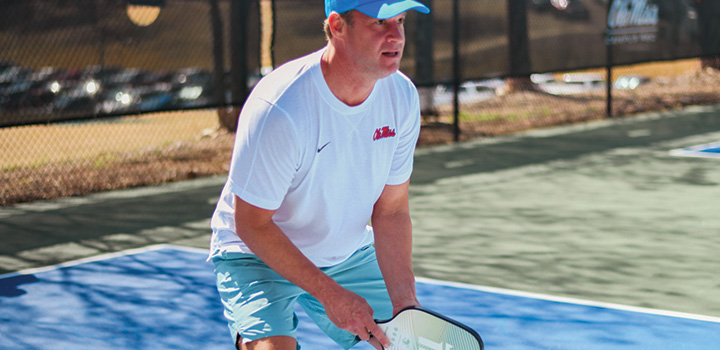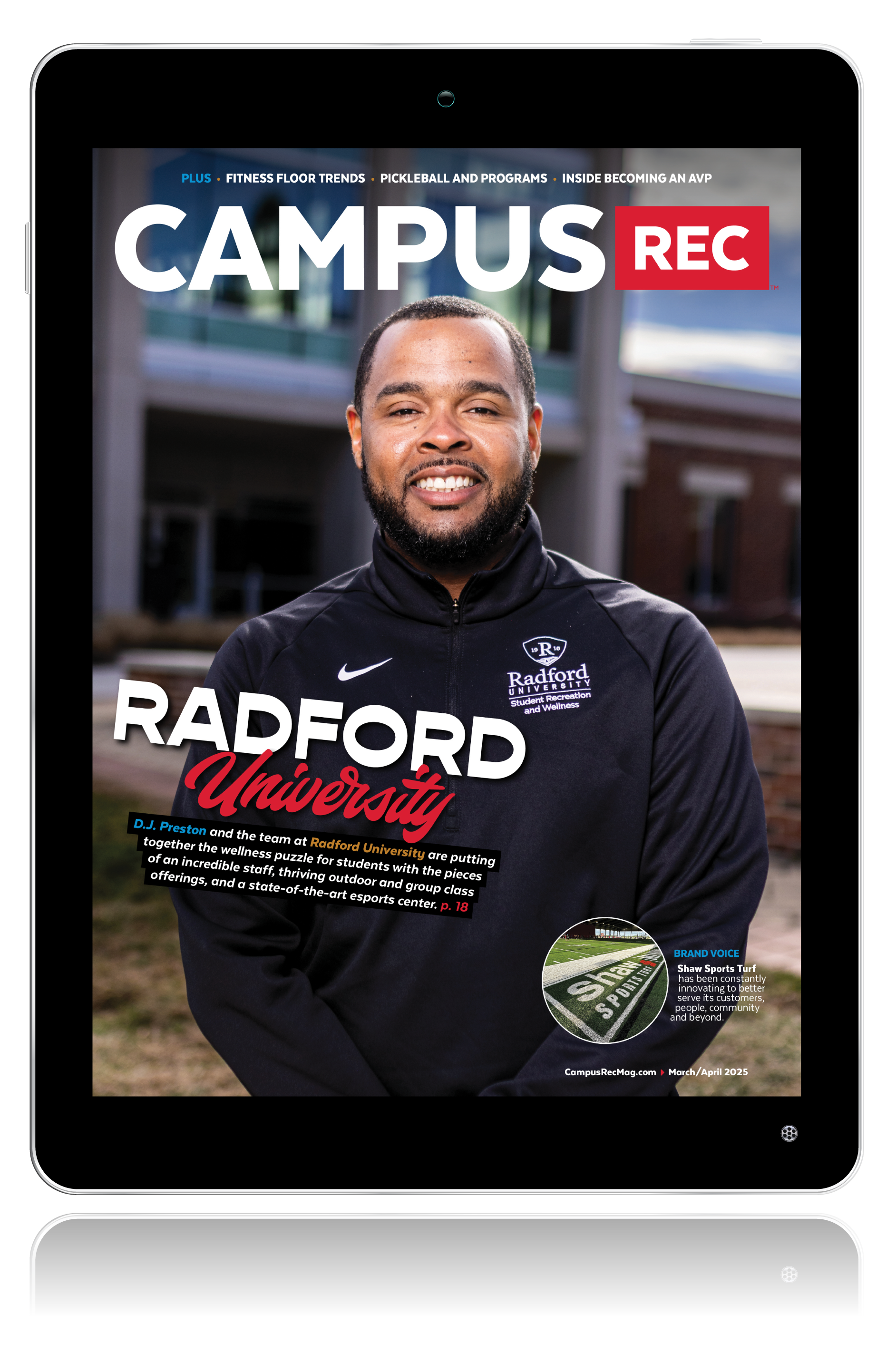Facility operations strategies are as diverse as the communities these buildings serve. Experience, collaboration and dedication are all part of what can lead to success in this area. The upkeep of your facility can require intensive processes and experts from a variety of backgrounds. From students and recreation professionals to other university departments and outside contractors, it takes a village to keep facilities up and running.
Creating relationships with contractors or other university developments you partner with frequently is a great way to set yourself up for success. David Chambers, the associate director of Operations at Southern Methodist University (SMU) in Dallas, Texas, relies a lot on other community members to fix problems that arise. Without mutual trust, keeping the facility open and running would be difficult.
“I rely on the expertise of others and their communication to make sure things are fixed and operating the way they should,” explained Chambers. “For example, I’m not an HVAC person, but we have a lot of HVAC problems. I have to rely on the experts to be able to get that fixed. I have to communicate with and trust people are trying to do their best and acting in everyone’s best interest.”
Risk management also plays a large part in both facility management and programming, which is what Chambers’ background is in. As such, moving to operations required self-discipline to view risk management in a different way.
“When I jumped over to facilities, one of the first things I looked at was risk management,” said Chambers. “How are we recognizing hazards? I had to recognize risks and take action to minimize the consequences. The other part of risk management is every day will bring a new situation. This is probably the thing I enjoy the most.”
EXTRA CREDIT: Making the best indoor turf spaces.
This plays a part in collaborating with the university’s Facility Services team so any problems that arise can be taken care of efficiently and effectively. An example Chambers gave was if there’s a problem with the pool’s pump. Facility Services staff will fix it while Chambers’ concerns are who it will affect, who needs to be informed about the problem and whether or not the pool needs to be closed.
At the University of Maine (UMaine), facility operations is handled differently. Campus Recreation takes care of many problems in-house, getting student staff, professional staff and members involved. For example, student workers clean equipment throughout the day, collect dirty laundry and replenish cleaning supplies. Patrons are asked to wipe down machines after using them. And professional staff like Eric Swett, the Operations coordinator, handles the maintenance of almost 100 pieces of cardio equipment, among other tasks.
Being able to face problems with fitness equipment as they arise is extremely important for UMaine because of its location.
“We like to joke we’re at the end of the pipeline,” said Swett. “The closest company who could fix equipment comes out of Portland, Maine, or even Massachusetts. If they would need parts, they’d have to order them and come back. So, we’re fortunate we can do everything ourselves, and we like doing it.”
They learned to take care of fitness equipment problems in house by going to the Life Fitness Academy which trained them on the supplier’s specific equipment. Attending the conference also gave them access to service manuals which they can reference whenever there’s a malfunction. They also have access to Matrix’s maintenance website to order parts and read through repair manuals after buying equipment recently. From these resources, they’ve gained practical knowledge that can be used to repair similar equipment as well.
EXTRA CREDIT: Building lasting relationships with fitness equipment vendors.
One common problem Swett pointed out that requires a different solution is damaged upholstery. Many times when there’s a problem, the part has to be replaced, and Swett turns to Full Circle Padding. With a quick email or order, the company can ship the needed part to the facility.
Users have also noticed how hands-on the Campus Rec staff are, and they recognize who to go to when a piece of equipment has a problem. When Swett is walking around, members will tell him what machine they’re having trouble with, and he can fix it on the floor.
“I don’t mind it at all,” said Swett. “I do know people want to tell us what’s wrong, but it’s because they like our facility and would like to have some ownership in it. We’re not just serving students, we’re serving the community. They like to know what’s going on, but that just means they care which I appreciate.”
Similarly, facility operations at the University of Mississippi (Ole Miss) tie into user experience with the upkeep and manicuring of outdoor spaces including fields, courts, a disc golf course, a ropes course and outdoor fitness equipment.
“Maintaining these areas is important because they have to be safe to play on, and students participate in club sports because they love the game,” explained Jason Shirkey, the associate director of Facility Operations at Ole Miss. “It’s how they socialize on campus and make a greater connection with the university. The competition is still important to them. We have to do our best to give them the opportunity to participate at a high level and enjoy the experience.”
EXTRA CREDIT: Creating space for outdoor recreation.
Routinely, Campus Rec staff make sure trash is picked up, equipment isn’t damaged, fields are ready for club sports and intramural practices, and more. But these routines are also adaptable, and staff are trained to handle any unforeseen problems that may arise.
“There are some things we check every day to ensure these areas stay safe and pretty,” said Shirkey. “You’re constantly looking for things that need to be addressed and fixed. But after so many years, you better understand what needs to be done and what to expect when it comes to facility operations.”
With outdoor areas, a big issue that can affect schedules is weather. The team will look at the weather forecast and prioritize tasks that need to be completed like mowing grass before it rains. They also know certain yearly practices that need to be done, such as spraying for armyworms every spring. Understanding these needs while remaining adaptable aids both facilities and staff in operating smoothly.
“Preplanning helps us be successful,” said Shirkey. “After a while, you know what to budget for. But also every year is a different and good surprise. You learn to plan for unforeseen things, whether it’s budgeting, hiring or equipment. You get out there, and you get it done.”
Making sure your facility is safe, clean and operating well is of the utmost importance, especially with the potential wear and tear that happens. Because campus rec buildings are often where students exercise, play sports and hang out among other recreational activities, ensuring everything is running smoothly can be an arduous but rewarding task.










